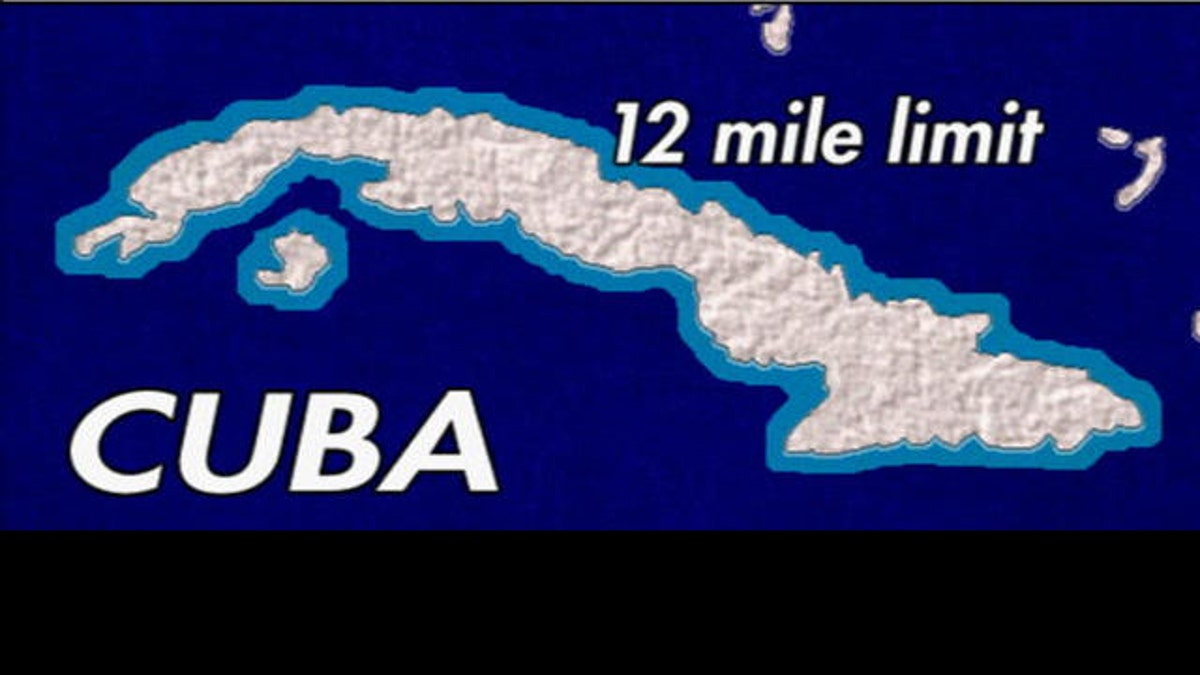
Cuban exiles plan a flotilla off the Havana coast to protest human rights abuses in their native homeland.
Cuba's political leaders say the flotilla, which will feature fireworks, is meant to provoke a confrontation, but the exiles deny it.
The protesters said they would follow U.S. Department of State warnings not to enter Cuban territory, which begins 12 miles offshore. The demonstration is in honor of Saturday's United Nation's International Human Rights Day.
"We aren't provoking anybody. We are exercising our rights (of freedom of expression)," said Ramon Saul Sanchez, head of the independent Democracy Movement, who is organizing Friday's demonstration to show solidarity with activists on the island.
Last month, the groups met with State Department officials and announced the department would not try to stop them. The department has also met with Cuban officials at their request.
"We urge the Democracy Movement and the Cuban government to exercise caution and restraint in the upcoming fireworks show," a State Department spokesman said Wednesday. "We didn't encourage the activity, but we also don't have the authority to prevent it."
The official requested anonymity because the issue was still under federal interagency review.
The groups are planning to have at least six boats but it could be fewer depending on the weather. They plan to fly a white flag and an image of Laura Pollan, the recently deceased leader of the Cuban group Ladies in White. The group was founded by the wives of political prisoners and demonstrated for years to free them. After their relatives were released, they vowed to continue their activity.
The coalition plans leave from Key West Friday morning and begin the fireworks around 8 p.m., returning for the U.S. two hours later.
Neither the Cuban written press nor TV news broadcasts have mentioned the protest. But the Cuban government's website Cubadebate on Tuesday called it a provocation and accused the Obama administration of backing the effort.
"This new provocation scheduled for the 9th of December has been approved by the administration of Barack Obama, who says he is working to ease relations between the U.S. and Cuba," according to the article by Jose Luis Mendez.
He said the protests aimed to cause internal disorder in Cuba and violates international law.
Coast Guard spokeswoman Marilyn Fajardo said her agency would have cutters and aircraft patrolling the area but that the agency would not bring in added resources. She declined to give specifics on the number of vessels or aircraft.
Coast Guard officials will likely create a safe zone, requiring the protesters to remain more than 12 miles offshore. Fajardo said the agency would document any detected incursion by the U.S. vessels into Cuban waters — illegal without Coast Guard permission — and would take appropriate measures. She did not rule out immediate enforcement action.
"Our being there provides us the ability to ensure safe and legal development of the protest in addition to being able to provide search and rescue if it's needed," Fajardo said, adding officials had discussed U.S. regulations at length with Sanchez and others involved.
But she added, "The coast guard will not interfere with legitimate law enforcement action of the Cuban government. In other words, if a vessel gets by the Coast Guard and gets into Cuban waters, they are placing themselves in great risk. The U.S. cannot speculate as to the response of another government in this or any other situation."
The flotilla is part of a history of Cuban exile protests and activities, many of which have included clandestine missions on or near the island. In 1996, the Cuban military shot down two planes carrying activists from the exile group Brothers to the Rescue, killing four members. Cuba maintains the group flew into Cuban territory. The activists deny the charges.
Cuba expert Phil Peters of the Lexington Institute think-tank called the flotilla "a perfectly legitimate, peaceful protest," but he questioned whether Cubans on the island would actually be able to see the fireworks 12 miles away from the coast.
Peters said it was unusual for the government to support people who are conducting a protest outside of U.S. territory but he noted if the Coast Guard is present, "It certainly reduces the risk that they will pass the 12-mile limit and would seem to minimize the risk of an incident."
This is based on a story by The Associated Press.
Follow us on twitter.com/foxnewslatino
Like us at facebook.com/foxnewslatino
